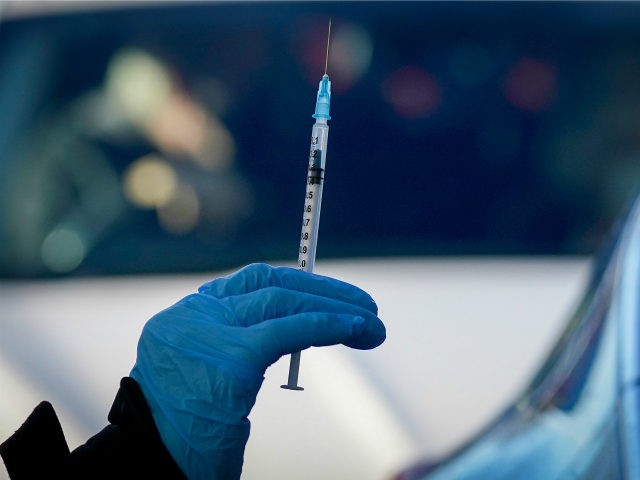A group of scientists from the United States, France, Italy, the Netherlands, and even Russia wrote a stern letter to top medical journal The Lancet on Thursday blasting the developers of Russia’s Sputnik V vaccine for “data discrepancies,” “problematic” information, “numerical inconsistencies,” and “substandard reporting” of results from clinical trials.
The authors expressed “serious concerns” about the Phase III human trials of the vaccine.
The group, led by Temple University biologist Enrico Bucci, complained Russia’s Gamaleya Institute ignored multiple requests for its raw data, modified its reports without properly documenting the changes, and released numbers that literally do not add up.
For example, adding the number of participants randomly selected and pre-screened for the trial produces 57,940 total participants, but in one important document, Sputnik V’s developers claim there were only 33,758 people involved.
The skeptical scientists implied the Gamaleya Institute is fudging its numbers to make Sputnik V appear more effective than it actually is, including some “highly coincidental results” that cannot be evaluated and verified properly without access to the raw data.
The Moscow Times noted this criticism was lodged just as Russia seeks authorization from the European Medicines Agency (EMA) for Sputnik V. The authors of the Lancet letter are not the first to accuse Russia of fudging its test results to produce improbably high claims of effectiveness. The financiers behind Sputnik V, the state-managed Russian Direct Investment Fund (RDIF), were accused last month of using improper methodology to calculate a fanciful claim of 97.6 percent effectiveness, which would make Sputnik V one of the most effective of all coronavirus vaccines.
According to the Moscow Times, the Gamaleya Institute refuses to make its data available until its studies are complete and it has “the approval of various stakeholders,” including a “so-called security department.”
The institute has not released any additional data in response to the Lancet letter, although it did admit there could be some “simple typing errors” in its documentation that produced the discrepancies noted by the skeptical scientific group.
Another Moscow Times article on Wednesday pointed out that despite the Russian state’s lofty claims about Sputnik V, 62 percent of the Russian people refuse to take the vaccine, and the percentage of Russians willing to be inoculated is going down. In February, 30 percent said they were ready to be injected with Sputnik V, but only 26 percent said so in the latest poll. Only 10 percent of respondents said they had actually received the shots.
Russian officials said on Monday “production problems” created a shortage of Sputnik V that will delay supplies to other countries and second shots for Russians. The two shots were originally supposed to be administered within a few weeks of each other, but Russian scientists are now recommending a six-month interval between them.

COMMENTS
Please let us know if you're having issues with commenting.